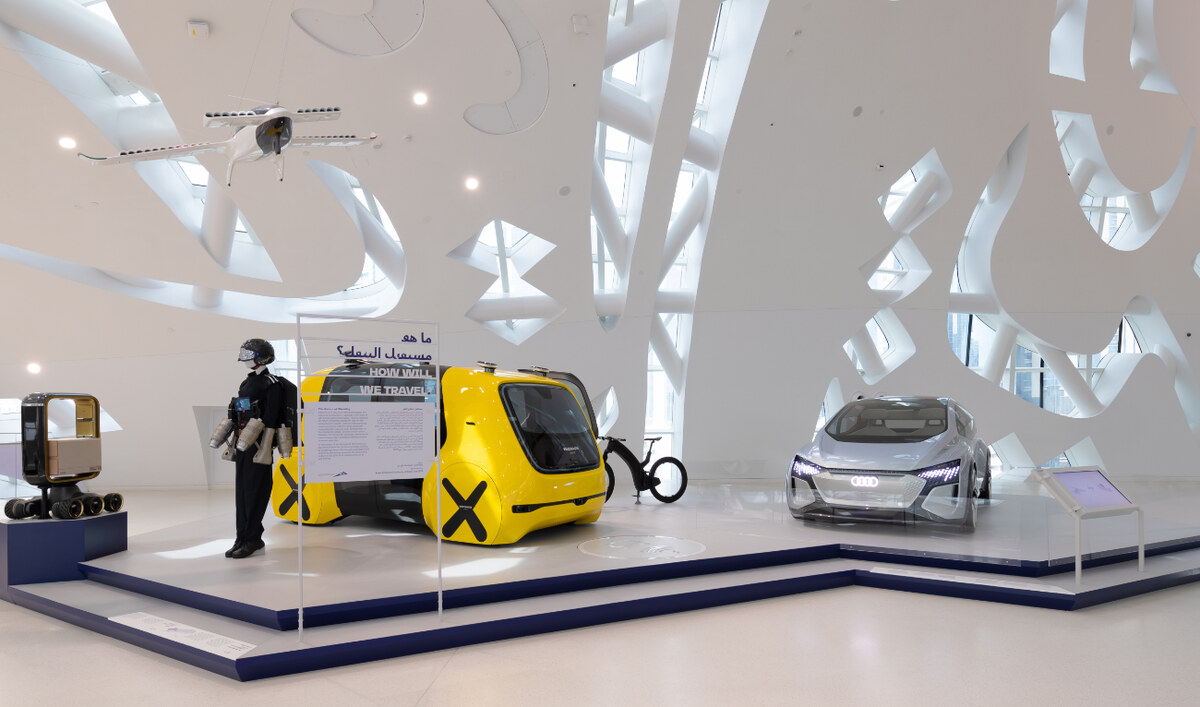RIYADH: The role of a CEO is often seen as the pinnacle of corporate leadership, a position that carries immense responsibility and intense pressure, especially during turbulent times.
However, when companies face mismanagement, financial crises, or the need to chart out a new direction, even the most respected CEOs can find themselves ousted.
In June, CEO departures in the US surged 97 percent to 234, up from 119 in May, and nearly double the 118 exits in June 2023, according to Challenger, Gray & Christmas, a Chicago-based executive outplacement firm. This year has recorded 1,101 CEO exits through June, marking a 21 percent increase from last year.
Here are 10 notable CEO exits, highlighting the circumstances behind their departures:
Laxman Narasimhan, Starbucks
Laxman Narasimhan is stepping down as Starbucks CEO after just one year, with Brian Niccol of Chipotle set to succeed him as CEO and chairman on Sept. 9.
Despite Narasimhan’s efforts to revamp operations and expand into new markets, the challenges proved insurmountable, leading to his premature departure.
Niccol, who successfully revitalized Chipotle following its Escherichia coli outbreak, has overseen a remarkable 800 percent increase in revenue under his leadership, according to CNN.
Starbucks is hopeful that Niccol can replicate this success and address the company’s ongoing challenges, including declining sales and intensified competition in both the US and China.
The company recently lowered its annual sales forecast due to weak coffee demand in its top markets. Narasimhan’s exit, following criticism from activist investor Elliott Investment Management and former CEO Howard Schultz, triggered a 19 percent rise in Starbucks’ stock.
Adam Neumann, WeWork
As co-founder and former CEO of WeWork, Adam Neumann was initially praised for his vision in the co-working sector. However, his tenure was plagued by extravagant spending and erratic management, leading to major financial issues.
In 2019, WeWork’s public listing was canceled amid investor concerns about governance and financial stability, prompting Neumann’s exit. The company filed for bankruptcy in November 2023, marking a dramatic fall from its peak valuation.
Founded in 2010 by Neumann and Miguel McKelvey, WeWork quickly grew, reaching a $5 billion valuation by 2014 and a $47 billion valuation by early 2019 after significant investments from SoftBank.
However, its initial public offering filing in August 2019 revealed major losses, and the company postponed and eventually withdrew its listing plans.
WeWork went public in October 2021 through a merger with BowX Acquisition Corp., achieving a $9 billion valuation. Despite a recovery in occupancy rates, the company struggled financially and warned of potential bankruptcy in August last year.
By November 2023, WeWork filed for Chapter 11, with its stock plummeting to 84 cents per share and a valuation of $44.5 million.
Trevor Milton, Nikola Corp
Trevor Milton, founder and former CEO of Nikola Corp, saw his career collapse amid fraud allegations. Milton had promoted Nikola as a leader in electric and hydrogen vehicles, attracting substantial investor interest.
In September 2020, Hindenburg Research published a report accusing Milton of making false claims about Nikola’s technology. The report provided evidence, including recorded calls, emails, and photos, showing a pattern of deception. It claimed Milton built an approximately $20 billion company on misleading statements.
The report revealed that Nikola misled partners about its technology, staged a deceptive video, and made false claims about battery and hydrogen production capabilities. It also pointed out non-existent solar panels and gas wells and inflated order numbers.
These revelations led to Milton’s resignation and, in July 2021, criminal charges for defrauding investors.
Steve Jobs, Apple
Steve Jobs is perhaps the most famous example of a CEO being ousted from his own company. In 1985, a power struggle with then-CEO John Sculley and Apple’s board led to Jobs’ resignation, as his leadership style and the company’s declining sales were seen as liabilities.
Jobs’ departure marked a low point but set the stage for a remarkable comeback. He founded NeXT, which was later acquired by Apple in 1996 for $429 million, leading to his return.
Jobs then transformed Apple with products like the iPod, iPhone, and iPad, driving the company’s success to a current market cap of $3.36 trillion.
The conflict that led to Jobs’ exit stemmed from tensions with the board and his challenging management style. After recruiting Sculley from PepsiCo, Jobs faced increasing friction when key products underperformed. This friction led to his removal or resignation, depending on the perspective.
Jobs’ return to Apple after NeXT’s acquisition marked a turning point, ultimately resulting in one of the most successful comebacks in business history.
Steve Easterbrook, McDonald’s
Steve Easterbrook’s tenure as CEO of McDonald’s ended abruptly in November 2019 after the company’s board determined he had violated company policy.
Easterbrook, who had been with McDonald’s for over two decades, was credited with modernizing the fast-food giant and driving a significant turnaround in its fortunes.
However, his departure was not related to business performance but rather a violation of company policy regarding relationships with employees.
Elon Musk, Twitter
In December 2022, Elon Musk announced his intention to step down as CEO of Twitter, following his $44 billion acquisition of the platform and subsequent restructuring.
Musk, who had assumed the role of CEO after completing the purchase in October 2022, stated that he would relinquish the position once a successor was appointed.
In May 2023, Musk confirmed in a tweet that he had identified a new CEO for Twitter, writing: “She will be starting in ~6 weeks! My role will transition to being exec chair & CTO, overseeing product, software & sysops.”
After stepping down as CEO, Musk continued to oversee Twitter’s software and server operations. In July 2023, Twitter was officially rebranded as X, with the site’s name changing to X.com. This rebranding was part of Musk’s vision to transform the platform into an “everything app.”
Bob Iger, Disney
After extending his retirement multiple times, Bob Iger officially stepped down as CEO of Disney on Feb. 25, 2020. His successor, Bob Chapek, who had been Disney’s parks chairman, took over the role immediately.
Iger, who became CEO in 2005, succeeded Michael Eisner. Eisner’s tenure was marked by early successes but ended with challenges that led to a leadership change. Although Iger was initially seen as Eisner’s preferred choice, his appointment was met with mixed reactions and concerns about continuity.
Under Iger’s leadership, Disney saw substantial growth and transformation, including the acquisitions of Pixar, Marvel, and Lucasfilm, and a focus on expanding franchises and technology. Despite initial skepticism, Iger’s strategic vision revitalized Disney and increased its stock value significantly.
Iger's retirement was delayed due to various factors, including a failed succession plan that saw Tom Staggs, Iger’s initially chosen successor, leave the company.
In February 2020, Chapek was named CEO, with Iger transitioning to executive chairman overseeing creative activities.
However, Chapek’s leadership faced difficulties, leading to Iger’s return as CEO in November 2022. Iger’s extended contract now runs through the end of 2026, marking over two decades of leadership at Disney.
Jeff Bezos, Amazon
Jeff Bezos stepped down as Amazon’s CEO on July 5, 2021, marking 27 years since he founded the company in his garage in Bellevue, Washington.
Under Bezos’s leadership, Amazon evolved from an online bookstore into the world's largest online retailer. He guided the company through the early 2000s dot-com bubble and spearheaded its expansion beyond internet commerce.
Andy Jassy, who joined Amazon in 1997, succeeded Bezos as CEO. Before this, Jassy led Amazon Web Services, Amazon’s highly profitable cloud computing division that supports major internet services like Netflix, Facebook, and Twitter.
In November 2021, the EU charged Amazon with antitrust violations, alleging the company used its market dominance and data access to disadvantage smaller merchants reliant on its platform. Amazon also agreed to a $62 million settlement with the Federal Trade Commission over allegations it withheld tips from delivery drivers between 2016 and 2019.
Amazon has faced increasing labor unrest, with its workforce growing to 1.3 million employees. Issues such as safety concerns during the pandemic and unionization efforts at a fulfillment center in Bessemer, Alabama, have prompted significant responses from the company.
In August 2013, Bezos acquired The Washington Post and several local publications, websites, and real estate for $250 million through Nash Holdings LLC, his private investment firm.
Mark Parker, Nike
Mark Parker stepped down as Nike’s CEO on Jan. 13, 2020, after 13 years at the helm of the global footwear company.
Parker joined Nike in 1979, where he held various roles, including product designer and co-president of the Nike brand, before being appointed CEO in 2006.
Parker’s tenure at Nike faced significant challenges, including controversies and legal issues.
In 2018, Nike underwent an executive shake-up amid allegations of gender discrimination and a “boys’ club” culture within the company. Additionally, Nike shut down the Nike Oregon Project in 2019 following a four-year ban imposed on coach Alberto Salazar for doping violations.
In an October 2019 interview with CNBC, Parker dismissed suggestions that these issues influenced his decision to step down, stating that his departure was part of a planned transition.
These stories highlight the precarious nature of the CEO role. Success demands visionary leadership and the ability to manage complex challenges while maintaining the confidence of investors, employees, and the board.
The news about Parker came the same day that Under Armour’s Kevin Plank announced he would leave his post as CEO of the Nike rival.
Kevin Plank, Under Armour
Kevin Plank, the founder of Under Armour, was a charismatic leader who built the company from a basement startup into a global sportswear brand.
The company, which had $5 billion in sales in 2018, has seen its once-robust profit turn into net losses of more than $46 million in each of the previous two fiscal years.
In 2018, it cut around 400 jobs to streamline a business suffering from slowing growth.
By 2019, Under Armour was facing significant challenges, including slowing sales and increasing competition from rivals like Nike and Adidas.
In October 2019, Plank stepped down as CEO, though he remained involved with the company as executive chairman.
As of August 2024, Under Armor has a market cap of $3.44 billion.
These stories highlight the precarious nature of the CEO role. Success demands visionary leadership and the ability to manage complex challenges while maintaining the confidence of investors, employees, and the board.































